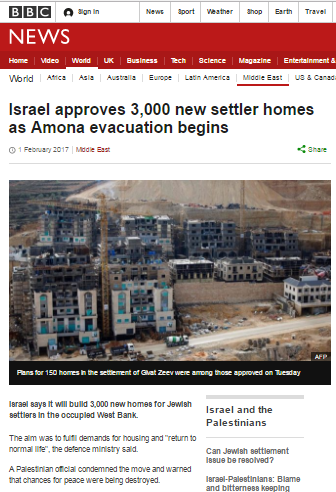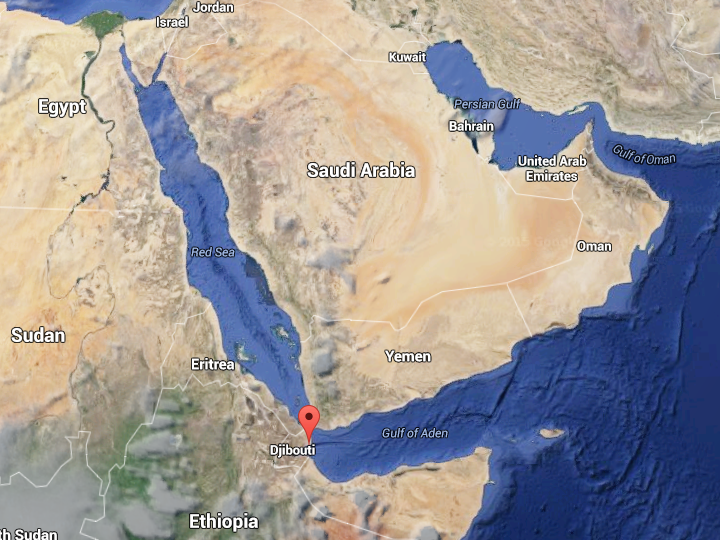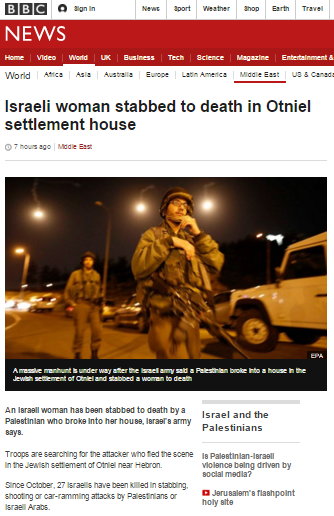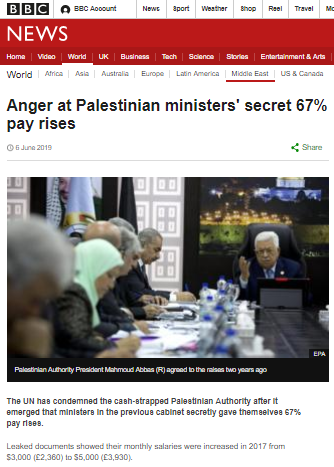If there’s one Middle East related topic the BBC can be relied upon to report methodically, that is Israeli announcements concerning building plans in Judea & Samaria and parts of Jerusalem: areas the corporation’s journalists are prone to erroneously describe as “Palestinian territories” or “occupied Palestinian land”.
In late January visitors to the BBC News website saw two reports on planning permissions granted in Jerusalem and in Judea & Samaria. Both those articles included amplification of negative reactions from Palestinian and other sources and promotion of the notion that Israeli housing projects are the prime obstacle to a peace agreement between Israel and the Palestinians, as well as the BBC’s standard – but not impartial – mantra concerning ‘international law’.
“About 500,000 Jews live in about 140 settlements built since Israel’s 1967 occupation of the West Bank and East Jerusalem.
The settlements are considered illegal under international law, although Israel disputes this.”
Not unexpectedly, the same elements were also found in a report which appeared on the BBC News website on February 1st under the headline “Israel approves 3,000 new settler homes as Amona evacuation begins“.
Palestinian reactions were amplified:
“A Palestinian official condemned the move and warned that chances for peace were being destroyed. […]
Palestine Liberation Organisation (PLO) Executive Committee member Hanan Ashrawi warned that the “frenzied escalation of Israel’s illegal enterprise” signalled “the final demise” of the two-state solution to the Israeli-Palestinian conflict.”
The theme of Israeli building preventing peace was further reinforced:
“Tuesday’s announcement follows on from the recent approval of 2,500 housing units in the West Bank and 550 in East Jerusalem.
Many in the international community condemned those, saying they undermined hopes of creating a future Palestinian state.”
And of course the usual messaging concerning ‘international law’ was found in the article – albeit with a sudden and unexplained increase in the number of people described as living in ‘illegal’ communities and neighbourhoods compared with the article that appeared ten days earlier.
“More than 600,000 Jews live in about 140 settlements built since Israel’s 1967 occupation of the West Bank and East Jerusalem. The settlements are considered illegal under international law, though Israel disputes this.”
Those same elements were also found in a report published the following day – February 2nd – under the headline “Israel police evict settlers from unauthorised Amona outpost“.
“Hours earlier, the Israeli government approved plans to build 3,000 new homes at settlements in the West Bank. […]
A Palestinian official, Hanan Ashrawi, condemned the latest approval and warned that chances for peace were being destroyed.
More than 600,000 Jews live in about 140 settlements built since Israel’s 1967 occupation of the West Bank and East Jerusalem. The settlements are considered illegal under international law, though Israel disputes this.”
Another article which appeared later the same day under the title “Amona: Israel police clear last protesters from settler outpost” informed readers that:
“Meanwhile, Israel’s prime minister has announced that he plans to establish a new settlement in the West Bank for the first time in more than two decades.
A statement from Benjamin Netanyahu’s office said he had set up a committee that would “begin work immediately to locate a spot and to establish the settlement” for those evicted from Amona.
More than 600,000 Jews live in about 140 settlements built since Israel’s 1967 occupation of the West Bank and East Jerusalem. The settlements are considered illegal under international law, though Israel disputes this.”
And:
“Mr Netanyahu said on Thursday that his government would establish a new settlement on state-owned land to replace Amona “as soon as possible”. […]
On Tuesday, Mr Netanyahu approved plans for 3,000 new homes at existing settlements – the third such announcement since the inauguration of US President Donald Trump, who has hinted he will be more sympathetic to settlement construction than his predecessor.
Palestinian official Hanan Ashrawi told the BBC that Mr Netanyahu had been “emboldened” by Mr Trump’s failure to express any disapproval at what she called the “frenzied escalation of Israel’s illegal enterprise”.”
The same themes were yet again found in an additional article published on the BBC News website on February 3rd under the headline “New Israel settlements ‘may not be helpful’ to peace, says US“.
“The fate of settlements in the occupied West Bank is one of the most contentious issues between Israel and the Palestinians.
More than 600,000 Jews live in about 140 settlements built since Israel’s 1967 occupation of the West Bank and East Jerusalem. The settlements are considered illegal under international law, although Israel disputes this. […]
On Wednesday Prime Minister Benjamin Netanyahu said he was moving ahead with plans to set up a new settlement in the West Bank for the first time in more than two decades. […]
The UN resolution [2334] – the first since 1979 to condemn Israel over its settlement policy, and effectively allowed to pass by the Obama administration – said the settlements had “no legal validity” and constituted “a flagrant violation under international law and a major obstacle to the achievement of the two-state solution”.”
So here we see that in twelve days the BBC News website published six articles which repeat identical messaging over and over again. In none of those articles were readers informed of any of the alternative interpretations of ‘international law’ and readers received no explanation as to why “Israel disputes this” – even though we know that the BBC is aware of the reasoning behind Israel’s stance.
Furthermore, in none of those six reports were readers presented with any information concerning any of the no less relevant issues which can be described as “a major obstacle to the achievement of the two-state solution” such as Palestinian terrorism, Palestinian Authority incitement, Hamas’ outright refusal to accept the two-state solution, the PA’s refusal to recognise Israel as the Jewish state and the Hamas-Fatah split.
Even in articles concerning the evacuation of Amona, the BBC’s standard narrative was repeated without any mention of the fact that past experience shows both that Israel evacuated communities in 1982 as part of the terms of the peace agreement with Egypt and that the evacuation of all Israeli citizens from the Gaza Strip and from four communities in northern Samaria in 2005 did not end – or even reduce – hostilities.
The BBC’s editorial guidelines on impartiality include a rather elastic definition of ‘due impartiality’:
“The Agreement accompanying the BBC Charter requires us to do all we can to ensure controversial subjects are treated with due impartiality in our news and other output dealing with matters of public policy or political or industrial controversy. But we go further than that, applying due impartiality to all subjects. However, its requirements will vary.
The term ‘due’ means that the impartiality must be adequate and appropriate to the output, taking account of the subject and nature of the content, the likely audience expectation and any signposting that may influence that expectation.
Due impartiality is often more than a simple matter of ‘balance’ between opposing viewpoints. Equally, it does not require absolute neutrality on every issue or detachment from fundamental democratic principles.”
However, in relation to ‘controversial subjects’ the same guidelines state:
“When dealing with ‘controversial subjects’, we must ensure a wide range of significant views and perspectives are given due weight and prominence, particularly when the controversy is active. Opinion should be clearly distinguished from fact.”
The fact that the BBC has distilled the topic of Israeli construction in Judea & Samaria and parts of Jerusalem down to a collection of serially repeated talking points means that visitors to the BBC News website are clearly not being presented with the “wide range of significant views and perspectives” which would enhance their understanding of this issue.




